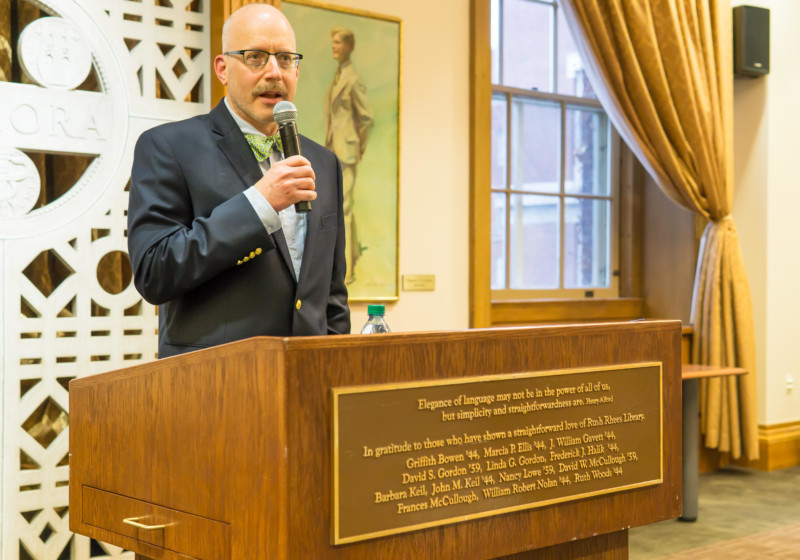Yale professor and acclaimed author James Forman Jr. urged UR students to think small and local during his seminar last Thursday as he explained how to reform the criminal justice system.
A skilled storyteller, Forman led a rapt audience through the argument of his book, “Locking Up Our Own,” contending that choices by local leaders have led to a prison system biased against African American men.
“Tiny decisions make the bricks of the walls that become the prison nation that is America,” Forman said.
His narrative focused on the political, historical, and imaginative constraints on these local leaders, which he used in explaining how a legal system with ample black leadership could still lead to the mass incarceration of African-Americans.
In his talk, Forman covered several different areas in which he felt dedicated people could have a bigger impact than in the federal system.
“Federal is, in some ways, a sideshow,” Forman said.
He broadened the scope to include school boards, local prosecutors, and even private businesses as viable places to have significant social impact.
Forman also advised students not to be discouraged as they fought to resolve the “unfinished business” of the civil rights movement from earlier generations. Drawing from his father’s experiences as an active member of the Student Nonviolent Cooperation Committee, he reminded them that Martin Luther King Jr. had been highly unpopular during his time.
“People will tell you that change is impossible […] and then when you make it happen, they’ll make a movie about it,” Forman said.
Some attendees left Forman’s talk inspired by his words.
“I don’t know about you, but I’m fired up,” senior and Male Minority Leadership Association member Steven R. Martinez said after the speech, whose organization mentors young male minorities at UR and in the Rochester City School District. “If we don’t do something about it, these kids are going to keep going to jail, but we can be the change.”
The talk was not only inspiring, but appropriate for UR since there are 35 prisons, jails, and detention centers within a 90-minute drive from the University, according to professor Kristin Doughty, who helped organize the event. This reality is the motivation behind the birth of the Rochester Decarceration Research Institute, which consists of eight researchers from UR faculty, Professors Doughty, Precious Bedell, and Joel Burges.
“You want prisons out of sight out of mind so people don’t think about the problem,” Burges said of why the awareness raised by Forman’s speech was so necessary.
“People have relatives who work at the prisons,” Bedell said. “It has an impact on all of us.”
At the beginning of his speech, Forman declared that students who wished to buy a copy of his book should do so at “whatever price you can afford.” And though this likely resulted in a much longer book-signing line, Forman still took the time to chat with every person in line.


